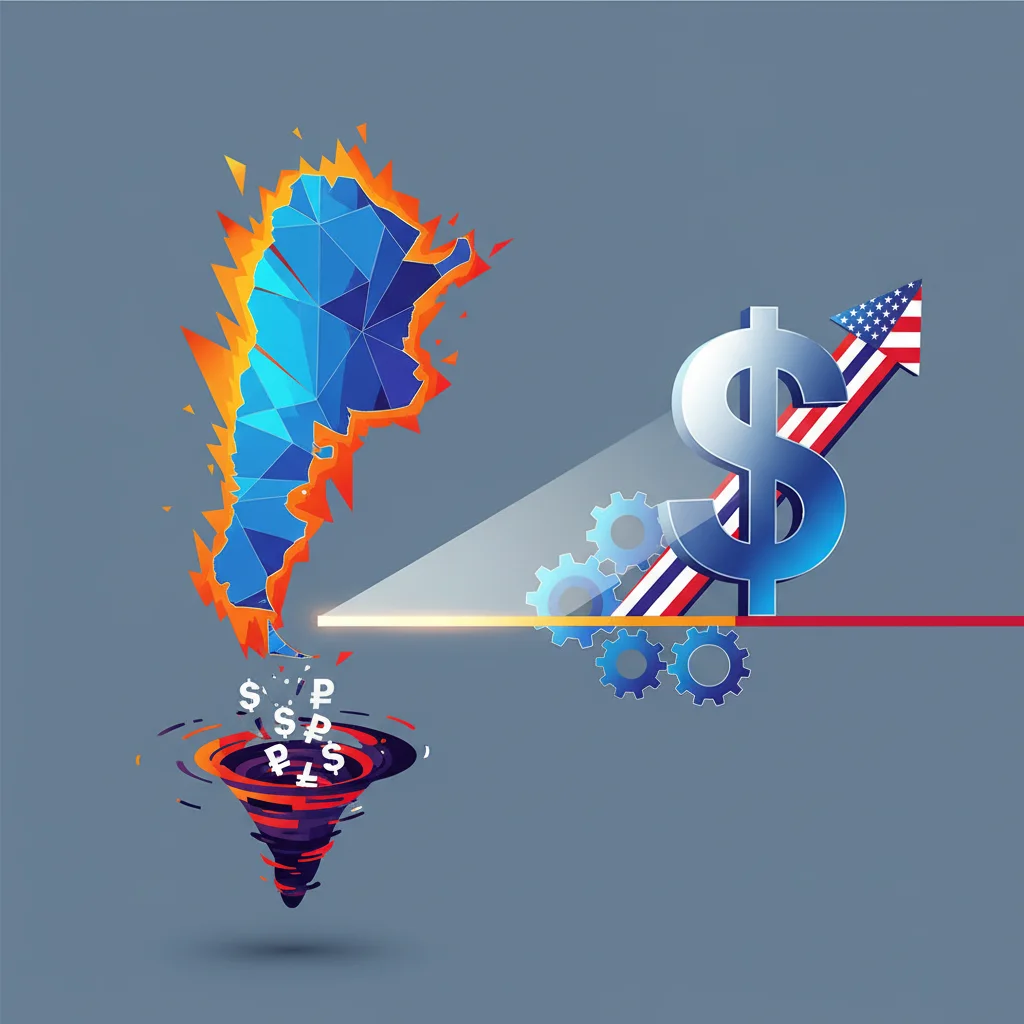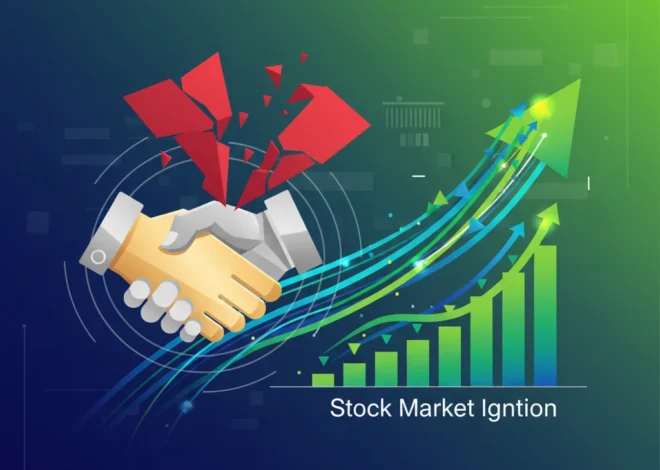
Argentina’s High-Stakes Gamble: Can Milei’s Shock Therapy Secure a US Lifeline?
Argentina stands at a pivotal economic crossroads. With the inauguration of its new libertarian president, Javier Milei, the nation has embarked on one of the most audacious and high-risk economic experiments in modern history. Inheriting an economy crippled by hyperinflation, depleted foreign reserves, and a labyrinth of currency controls, Milei has promised “shock therapy” to slay the beast of fiscal chaos. The world, particularly Washington and the International Monetary Fund (IMF), is watching with a mixture of hope and trepidation. The central question reverberating through the halls of finance is not just whether Milei’s plan can work, but whether the United States will provide the financial backstop to see it through.
This isn’t just a story about one nation’s economy; it’s a complex drama involving global finance, geopolitics, and the ideological battle over how to solve a deep-seated crisis. For investors, policymakers, and business leaders, the outcome in Argentina will offer profound lessons on the limits of radical reform and the intricate dance of international financial diplomacy.
The Anatomy of an Economic Catastrophe
To understand the sheer audacity of President Milei’s plan, one must first grasp the depth of the crisis he inherited. Argentina’s economy wasn’t just struggling; it was in a state of systemic failure, plagued by decades of mismanagement. The situation upon Milei’s takeover was nothing short of dire.
As detailed in a Financial Times analysis, the challenges are monumental. Annual inflation has soared past 200%, effectively erasing savings and pulverizing the purchasing power of ordinary citizens. The central bank’s foreign currency reserves were not just low; they were profoundly negative. This created a complex, multi-tiered exchange rate system that distorted trade and fueled a black market for US dollars.
Here is a snapshot of the key economic challenges facing the new administration:
| Economic Indicator | The Challenge |
|---|---|
| Inflation | Exceeding 200% annually, one of the highest rates in the world. |
| Foreign Reserves | Deeply negative net reserves, limiting the ability to pay for imports or service debt. |
| Fiscal Deficit | Chronic government overspending, financed by printing money, which fuels inflation. |
| Exchange Rate | A dozen or more official and unofficial exchange rates, creating massive economic distortions. |
| Central Bank Debt | Massive liabilities in the form of interest-bearing notes (Leliqs), creating a “monetary overhang.” |
This toxic cocktail of economic ills has left the country locked out of international capital markets and almost entirely dependent on its fraught relationship with the IMF, to whom it owes a staggering $44 billion.
Milei’s Prescription: Economic Chainsaws and the Dollar Dream
Javier Milei, an economist who campaigned brandishing a chainsaw to symbolize his intent to slash state spending, has wasted no time in administering his “shock therapy.” Led by Economy Minister Luis Caputo, the new government immediately announced a series of drastic measures:
- A 50% Devaluation: The official peso-to-dollar exchange rate was devalued by over 50% overnight to bring it closer to parallel market rates.
- Drastic Spending Cuts: The plan includes slashing energy and transport subsidies, halting new public works projects, and reducing the number of government ministries from 18 to 9.
- The End Goal: Dollarization? The ultimate, and most controversial, ambition of Milei’s team is to eventually abolish the peso and dollarize the economy. This would mean adopting the US dollar as the official currency, a move they believe would permanently end Argentina’s inflation curse by taking the power to print money away from politicians.
Dollarization is a high-stakes move with significant trade-offs. While it could anchor inflation, it would also mean surrendering monetary policy control to the US Federal Reserve, leaving Argentina unable to devalue its currency to respond to economic shocks. This radical approach to economics is what has both intrigued and alarmed the international financial community.
Washington’s Watchful Wait: A Bailout or a Bridge Loan?
With Argentina’s finances in tatters, all eyes have turned to Washington D.C., the home of both the US Treasury and the IMF’s headquarters. Will the US “bail out” Argentina? The short answer is no, at least not in the traditional sense. The term “bailout” is politically toxic and factually inaccurate in this context.
According to experts, the US Treasury’s stance is one of cautious optimism, contingent on performance. They are encouraged by the new government’s direction but are waiting to see a “credible and politically sustainable” economic plan fully implemented (source). The US holds the most significant voting power at the IMF, so its approval is essential for unlocking any funds from the existing program.
Instead of a new bailout, any financial support would likely come in one of two forms:
- Unlocking IMF Funds: The US could use its influence to help Argentina renegotiate its existing $44 billion program with the IMF, potentially accelerating disbursements to help rebuild reserves.
- A Bridge Loan: The US Treasury could potentially offer a short-term “bridge loan.” This would be a temporary measure to provide liquidity while Argentina works to stabilize its economy and secure longer-term financing.
However, this support is not unconditional. Washington wants to see Argentina do the hard work first. The initial devaluation and spending cuts are a down payment on credibility, but the IMF and Treasury will need to see sustained fiscal discipline before committing new capital. The world of international finance is littered with the ghosts of failed Argentine economic plans, and this time, lenders are demanding proof of concept.
The £3,000 Scoop: What an Ice Cream Shop's Bill Reveals About the UK Economy
The Geopolitical Chessboard: Countering China’s Influence
The decision for the US is not purely economic; it’s deeply rooted in geopolitics. China has become a significant creditor to Argentina, primarily through a multi-billion dollar currency swap line that has been used to prop up the country’s finances. Milei, however, has been openly hostile to Beijing, calling the Chinese government “assassins” and vowing to align his country with the US and Israel.
This creates a strategic opening for Washington. A stable, Western-aligned Argentina is a significant geopolitical prize in a region where Chinese influence has been steadily growing. Allowing Argentina’s economy to completely implode could push it back into Beijing’s arms, a scenario the US is keen to avoid. Therefore, providing financial support can be seen as a strategic investment in regional stability and a move to counter a key rival. This geopolitical dimension adds a powerful incentive for the US and its allies to find a way to support Milei’s government, provided it stays on its reformist path.
The Investor’s Take: A High-Risk, High-Reward Bet on Reform
For the investing world, Argentina has long been a synonym for default and volatility. Yet, Milei’s election initially sparked a wave of optimism in the markets. Argentine sovereign bonds, which had been trading at deeply distressed levels, rallied significantly on the news of his victory. Why? Because for the first time in decades, a leader was articulating a diagnosis of Argentina’s problems that resonated with the market: the state is too big, it spends too much, and it prints too much money.
Investors in the stock market and those trading in sovereign debt see a potential, albeit narrow, path to recovery. If Milei’s administration can successfully stabilize the currency, tame inflation, and achieve a fiscal surplus, Argentine assets are incredibly cheap. It represents the ultimate high-risk, high-reward play in emerging markets.
The risks, however, are enormous. The primary concern is “governability.” Milei’s party is a minority in Congress, and he faces powerful, entrenched opposition from unions and provincial governors who benefit from the status quo. If social unrest boils over or his legislative agenda is blocked, the market’s nascent optimism could evaporate overnight, sending the economy into another death spiral.
Conclusion: The Clock is Ticking
Argentina has taken a leap into the unknown. President Milei’s shock therapy is a bold, necessary, and incredibly perilous attempt to break a cycle of economic decline that has spanned generations. The plan’s success hinges on a delicate balance of brutal fiscal austerity, political resilience, and the patience of a long-suffering population.
International support, led by the United States and the IMF, will be a critical component. While a blank check is not on the table, a strategic financial bridge is a distinct possibility if—and only if—Milei’s government can demonstrate that its reforms are both effective and sustainable. The coming months will be decisive. The world is watching to see if this high-stakes gamble will finally be the one that pays off for Argentina, transforming it from a cautionary tale of economic mismanagement into a blueprint for radical reform.


